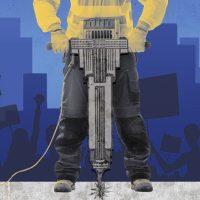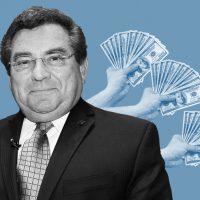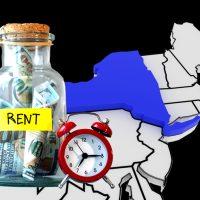Apartment owners like Jerry Waxenberg, whose firm owns several thousand units, are biting their nails over rent collections.
Waxenberg said his Bronx-based company has lost half a million dollars in rent over the last five or six months. Though collections have improved from a low in March, when his firm collected barely 80 percent of normal levels, he said he’s “fearful they won’t be in August, because the subsidies are running out.”
Enhanced unemployment benefits, which provided individuals with up to an extra $600 a week, expired July 31. And now, Congress’ talks for a second stimulus package have stalled. President Donald Trump, who appeared to take unilateral action to halt evictions, ultimately issued an order on Sunday that told agencies to “consider” another eviction ban for properties backed by the Fannie Mae and Freddie Mac.
The impasse between the White House and Congress has left landlords and tenants to fend for themselves. Most in the real estate industry feel that federal and state efforts to stop evictions fail to address the fundamental problem keeping tenants from paying rent: Unemployment is at levels not seen since the Great Depression, and direct federal aid has run out.
Read more



“Stopping evictions is like closing the door to the emergency room,” said Jay Martin, executive director of the Community Housing Improvement Program, which represents landlords of rent-stabilized apartments in New York City. Without the ability to evict, Martin argued, there is less pressure to provide a more lasting solution for renters, such as vouchers or direct assistance, which his group has pushed.
In many states, eviction moratoriums are set to expire or are becoming more limited in scope. In some cases, landlords aren’t waiting for the legal system, and are conducting extrajudicial evictions by removing tenants from their homes. Nearly a dozen landlord groups across the country are suing local governments to dismantle existing eviction bans.
This week, New York’s courts announced that as many as 14,000 evictions from before the pandemic could proceed — but physical enforcement of those evictions is on hold until at least October.
When evictions do start again, there will be a sizable backlog in the courts, said Alan Hammer, a former Kushner Companies executive, now has 12,000 units in the suburbs surrounding New York City.
“There is going to be a tremendous volume of evictions at some point — the backlog is going to be I don’t know how long,” said Hammer. “What we need is a program for tenants to get money.”
Since the coronavirus pandemic led to a sweeping economic shutdown in March, landlords have seen an uneven impact on rent collections. Surveys have consistently shown that lower-income housing has seen greater rent shortfalls. Many workers, those who are undocumented or in the gig economy, are excluded from receiving federal aid.
“In [New York’s] outer boroughs, if you have, gig workers, lower-wage earners, those are the people who run everything,” said Eric Orenstein, an attorney at real estate law firm Rosenberg and Estis. “The city doesn’t operate without people who work at the minimum wage level — and those people are struggling.”
Many landlords are hoping for a further relief plan — with direct payments or rental vouchers for tenants — from the federal government. One large multifamily landlord said that without federal assistance, there will be a “downward cycle from which it will likely take decades to recover.”
Several large landlords said they were less concerned about the limits on evictions than the possibility that people will leave New York City and not return. One multifamily firm reported vacancy levels that were at “unsustainable” levels.
“There is growing concern that without students and young adults relocating to New York City, apartments typically filled over the summer months will remain empty,” the landlord said.
Robert Nelson, whose firm owns more than 7,000 apartments in New York City, said the collections in his portfolio have been stable, so far, which he attributed to the federal relief that has now run out. Nelson said politicians are just trying to score points with voters, which gives him little comfort as a business owner.
“It’s a mixed bag — some politicians’ concerns are warranted, and some are irresponsible, but they’re just playing politics,” Nelson said, referring to politicians’ calls for a universal eviction ban or canceling rent. “It’s about currying favor with the voters.”
